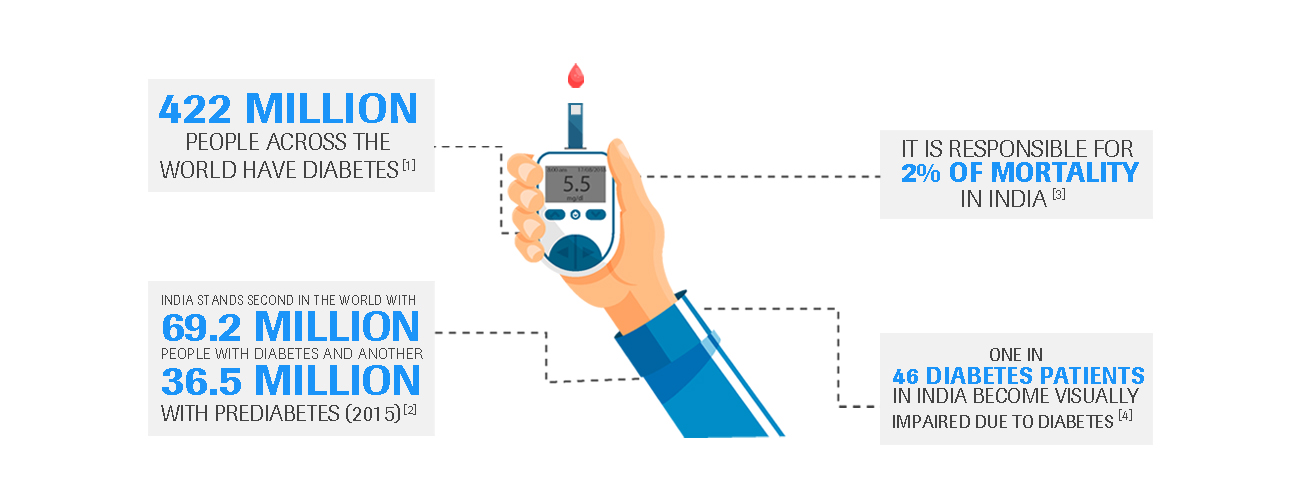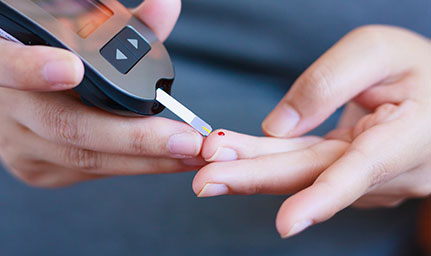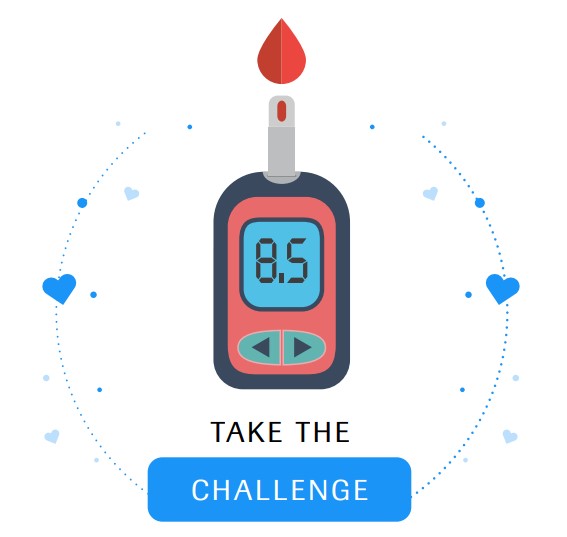
Don't Let Diabetes
Dictate Your Life
Take Back Control, Continue To Live Your Life


Type 1 diabetes is characterised by a decrease in insulin production in the body. It needs a daily dosage of insulin through shots to keep the health condition under control.

Type 2 diabetes is the result of our body’s ineffective use of insulin. This is the most common form of diabetes. Obesity and physical inactivity often tend to contribute to the condition.
The causes of diabetes depend on the type of diabetes, patients’ genetic makeup,
family history, ethnicity, health and environmental factors.[6]
This type of diabetes is a result of our immune system destroying insulin-producing cells in the pancreas.[7] Risk factors associated with type 1 diabetes are not as clearly known when compared to other types, though genetic factors are believed to play a role.[8]
Insulin resistance, which is the case of cells not responding to the insulin normally, is termed to be the main cause of diabetes type 2. This results in the rise of blood glucose levels.[9] Some of the causes of diabetes type 2 include[10] :
Common symptoms of diabetes include:

Increased Thirst
And Urination

Increased Hunger

Fatigue

Sores That
Don’t Heal

Numbness Or A Tingling
Feeling In The Feet Or Hands

Blurred
Vision
In Type 1 diabetes, the symptoms are perceptible in the initial stages, while in Type 2 cases, the symptoms develop slowly and progress with time. Most of the time people don’t realise they have diabetes until they encounter a diabetes-related health problem.[12]
All types of diabetes can lead to health complications, including:
Blood Glucose Tests: They help to determine the amount of glucose in your blood, providing doctors with insight, thus helping them diagnose diabetes.[14]
Hemoglobin A1c (Attached To Glucose): While blood glucose tests help understand the current levels of glucose in your body, doctors will also need to check history of glucose levels. The hemoglobin A1c test provides information about average levels of blood glucose, over the past 3 months.[14]
Urine Test: Urine tests are done to evaluate severe hyperglycemia by looking for ketones in the urine. Ketone levels increase when there is insufficient insulin in the body.[15]
Diabetes and its related symptoms can be managed using the following methods:
Diet & Exercise Following a healthy diet can help maintain blood glucose levels, increase energy levels and improve heart health. Regular physical exercise too can help with this, along with aiding weight loss.
Medical With daily pills or insulin shots, diabetes can be controlled. It is important to adhere to the dosage and timing as prescribed by the doctor.
Regular Monitoring At-Home/Lab Blood Glucose Tests: Monitoring glucose combined with diet, exercise and other methods help manage diabetes. Regular readings of glucose levels also enable the consulting doctor to suggest effective diet and medication.
Hemoglobin A1c Test This test determines your recent history of blood glucose levels, which helps doctors compare the results and regulate your lifestyle and medicines accordingly.

Test your knowledge of some common beliefs about diabetes.
1. https://www.who.int/health-topics/diabetes#tab=tab_1
2. https://www.nhp.gov.in/overview-of-diabetes-burden_mtl
3. https://www.who.int/diabetes/country-profiles/ind_en.pdf?ua=1
4. https://currentaffairs.gktoday.in/national-diabetes-and-diabetic-retinopathy-survey-2019-102019186407.html
5. https://www.who.int/news-room/fact-sheets/detail/diabetes
6. https://www.diabetes.co.uk/diabetes-causes.html
7. https://www.niddk.nih.gov/health-information/diabetes/overview/symptoms-causes
8. https://www.diabetes.org/diabetes/genetics-diabetes
9. https://www.health.harvard.edu/a_to_z/type-2-diabetes-mellitus-a-to-z
10. https://www.cdc.gov/diabetes/basics/risk-factors.html
11. https://www.niddk.nih.gov/health-information/diabetes/overview/what-is-diabetes/type-2-diabetes
12. https://www.diabetes.co.uk/diabetes-symptoms.html
13. https://www.who.int/diabetes/action_online/basics/en/index3.html
14. https://www.niddk.nih.gov/health-information/diabetes/overview/tests-diagnosis#diagnosediabetes
15. https://www.webmd.com/diabetes/guide/diabetes-urine-tests
16. https://www.niddk.nih.gov/health-information/diabetes/overview/managing-diabetes